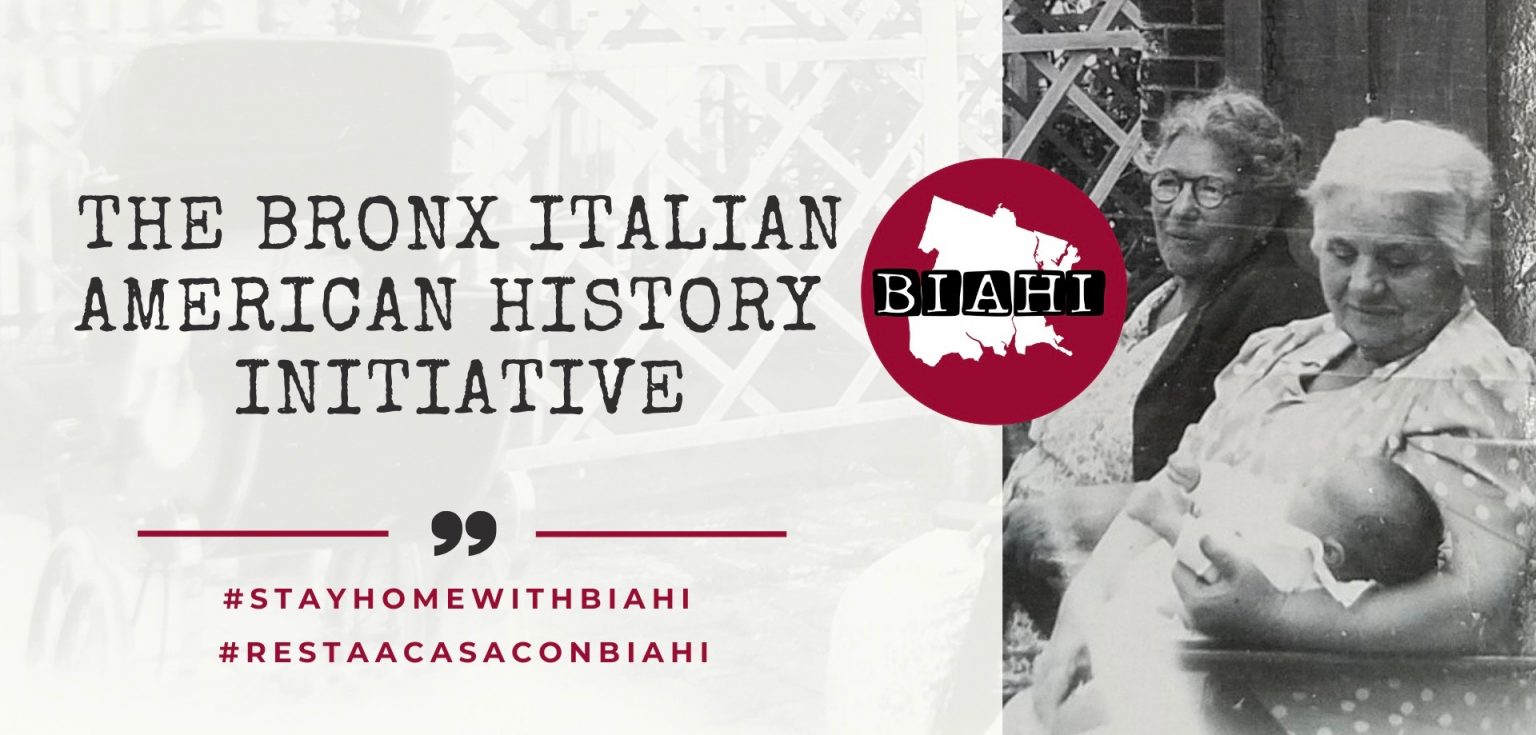“The idea is to inspire people to stay home, but also get to know more about the community that they’re situated within, and also to provoke a response from people and invite them to share their own experiences,” said Desislava Stoeva, a BIAHI graduate project assistant who spearheaded the campaign.
The Bronx Italian American History Initiative is an oral history research project that documents the lives of Italian and Italian American residents of the Bronx. Over the past four years, BIAHI project staff have pored over cataloged video and audio interviews throughout the 20th century and preserved their stories. They interviewed more than 40 members of the Bronx community and documented their stories in their digital archives, similar to what Fordham’s Bronx African American History Project has done for the Bronx’s black community. BIAHI staff, from faculty to undergraduate researchers, have presented their research in the U.S., Italy, and the United Kingdom.
Now that people are spending most of their time at home, BIAHI is sharing more of its stories with participants and donors online. In late March, the initiative launched the new social media campaign, marked by the hashtags #stayathomewithBIAHI and #restaacasaconBIAHI (the latter is the Italian translation of the first hashtag). Through its weekly content on Facebook and Instagram, the campaign ties together people from two countries that bore the brunt of the COVID-19 pandemic—Italy and the U.S., said Jacqueline Reich, Ph.D., co-director of BIAHI.
“We’re really trying, even in these difficult times, to engage with multiple publics as we do our outreach from home,” said Reich, who is also chair and professor of the department of communication and media studies.
Full of personal and historical details, the social media campaign’s stories evoke nostalgia about the old Bronx and its residents. There’s Robert Menillo, born in 1923, who recalls when there were no cars on the street and Arthur Avenue vendors sold produce from streetside carts. There’s Joanna Bonaro, who remembers attending Easter Mass with her parents and “how big of a deal” it was to get the coveted chocolate egg. There’s a trio of cousins who reminisce over a restaurant meal that tasted just like their grandmother’s.
“I was eating in a restaurant in Buffalo, my son lives in Buffalo, and it was an Italian restaurant, I tasted the sauce and it was my grandmother’s sauce, I couldn’t believe it. I hadn’t had that taste and that feel in like 50 years … It’s funny the memories that food brings you,” Carl Calò said in a BIAHI social media post.
In the full interview, Calò talks about growing up in the Edenwald Houses, a housing project in the Bronx, and what it was like to be the son of a Sicilian immigrant who was a sanitation worker. Eventually, his family left the projects and moved to Long Island. But one family member made his way back to where their American roots began.
“There’s this story of return in that interview where the cousin talks about how he went back to Edenwald when he was a New York City firefighter in the ’80s or ’90s. He knocked on his old apartment door, and he got to go in and see the little hole where he used to keep his box of army men hidden in his bedroom floor,” said Kathleen LaPenta, Ph.D., co-director of BIAHI and a senior lecturer in the modern languages and literatures department. “This kind of attachment that they have … I remember being affected by that [while conducting]the interview.”
In addition to posting on social media, BIAHI shares audio versions of its interviews on its SoundCloud podcast channel and the complete set of video interviews on its new digital archive website. In early May, BIAHI staff will talk about its initiative at a faculty webinar for Fordham’s development and university relations team.
In the meantime, strangers across social media are responding to BIAHI’s new campaign.
“It was nice to see people not just liking a post, but responding to it. One of our participants shared that his parents would talk to him in Italian, but he would always respond in English,” said Stoeva, a Fordham public media master’s student who plans on becoming a communications strategist. “It was interesting seeing people saying, ‘Yes, that was exactly my experience with that’ or ‘I resonate with that.’”

